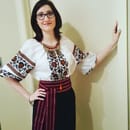Content Warning: Discussion on Death
We live in a society where we are supposed to be living our “best life”. Where the celebration of being young, healthy, strong, positive, hopeful are the most important labels that we all strive for. We are supposed to be individuals who are active, who love to learn, who are always growing, never failing. Yet we ignore, collectively as a society, the idea that our bodies, can fail. That we are mortal, and that we will die. Somehow, someway, we can and will die.
Scary thought, isn’t it?
This past fall, I took the elective course on Religion and Death. While Death is sadly no stranger to me in my life, I began to realize that I am scared of this form of inevitability. Living with Anxiety generally, this fear definitely contributed to it. Being diagnosed with a chronic condition? Even more nerve-wracking.
Yet that does not mean we cannot find things that can help us deal with the burden of our own mortality. For me, out of everything I learned in this course (and I learned a lot about myself and our society), one book stood out to me. This was no textbook, or article, but rather a small paperback non-fiction. A book about the story of a young man and his former professor, who was diagnosed with ALS. The author tells the story of the end of the life of Morrie Schwartz, a Sociology professor. Within this novel, the decline of the body is seen not as something to fear, but something that provides the opportunity to learn.
“My ALS is a gift”, says Morrie within the novel. Shocking for most able-bodied people, but for people like myself, though there are days when, like Morrie, I grieve about the loss of my “old normal”, I can relate. I know now who my friends are, those who have stuck by me through the ups and downs. I have learned to listen to my body. I have been ignited with a passion to help others and to make a difference in the world. Like Morrie, I want people to learn from my experience.
Yes, this book made me cry. Buckets actually, I am fairly sure I used up a whole packet of tissues. But it also made me laugh because I could see the humour in certain situations like the amount of food that ended up in the fridge as people tried to feed Morrie, even though he could not eat the food there. This book also made me see even more clearly how during this life that I have to live, I want to focus on the relationships I have with other people. Societal expectations mean less to me than the expectations I want to place into my life – to live well, to love others, to help people grow, and to enjoy each day I have received as a gift.
I strongly encourage anyone who can take the time to feel the emotions this book engenders, to read this novel. I would also suggest watching the interviews Morrie did that are discussed in the book.
Thank you Coach Morrie, for reminding me of what is important.



